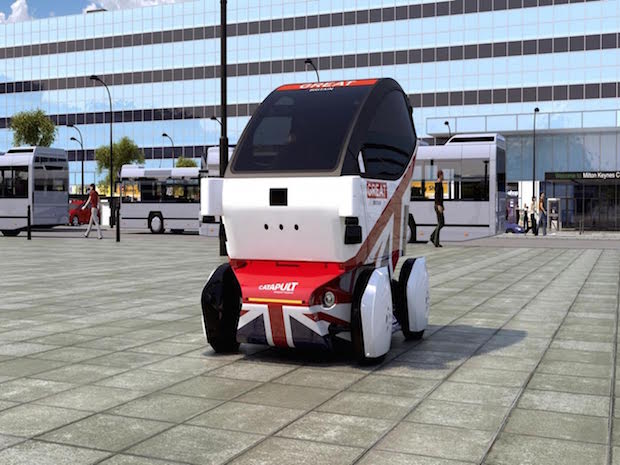Why we won't trust robot cars until they drive just like us


Driverless cars have already been tested on the streets of Milton Keynes.
Eight research projects focusing on driverless cars -- including one by Jaguar Land Rover -- have received a combined total of £20 million in funding from UK government as part of a scheme to pioneer the development of connected vehicles and "talking car technologies".
The projects are the first to receive support from the UK government's £100 million Intelligent Mobility Fund, which is designed to provide support for research into autonomous vehicles.
Business Secretary Sajid Javid announced the funding for driverless car projects during a visit to an autonomous vehicles test bed in Nuneaton.
"Our cars of the future will be equipped with the technologies that will make getting from A to B safer, faster, and cleaner. They will alert drivers of accidents ahead and be able to receive information from their surroundings about hazards, increasing the safety of drivers, passengers and pedestrians," he said.
Government money will be used to fund a number of areas around autonomous vehicles, including 'Insight', a project with a particular focus on improving accessibility for disabled and visually-impaired people via the use of driverless shuttles in urban areas.
A Bristol focused project dubbed 'Flourish' will use the funding to develop new tools to improve the understanding of user needs and expectations of connected and autonomous vehicles, while University of Portsmouth's Pathway to Autonomous Commercial Vehicles scheme will attempt to predict safety risks around driverless cars based on analytics.
One of the largest projects to receive funding is 'MOVE-UK', a £5.5 million scheme which brings together Bosch, Jaguar Land Rover, and others ,which is designed to accelerate the development, market readiness, and deployment of automated driving systems.
The research will see a fleet of sensor-equipped Jaguar and Land Rover vehicles driven around the London Borough of Greenwich by people to determine how real drivers react in traffic and help future autonomous vehicles drive naturally like human drivers, rather than like robots.
The theory, Dr Wolfgang Epple, director of research and technology at Jaguar Land Rover explained, is that motorists using the road at the same time as a driverless car will be more likely to trust it if it acts like a human.
"To successfully introduce autonomous cars, we actually need to focus more on the driver than ever before. Understanding how drivers react to a range of very dynamic and random situations in the real world is essential if we want drivers to embrace autonomous cars in the future," he said.
Data from sensors in these cars will reveal the natural driving behaviours and decision-making that drivers make, including complex and stressful scenarios. These include giving way at roundabouts and intersections, how drivers ease forward at junctions to enter a flow of traffic, or how they react to an emergency vehicle coming up behind their car whilst in a traffic jam.
Drivers will need to completely trust the vehicle before they opt-in and engage automated systems. If an autonomous car can be programmed to have a very similar reaction to a real driver, then the autonomous experience will be more natural, and the driver more likely to allow the car to take control, he said.
If drivers have confidence in the automation, they will flick from one mode to the other, he said, so the autonomous mode will help with any challenging, or less stimulating activities on the journey, like parking or driving in heavy traffic.
"If this automated experience feels natural and safe, the driver will be able to genuinely relax and will be happy to let the car take control," Epple explained.
"Customers are much more likely to accept highly-automated and fully autonomous vehicles if the car reacts in the same way as the driver. By understanding and measuring positive driving behaviours, we can ensure that an autonomous Jaguar or Land Rover of the future will not simply perform a robotic function," he added.